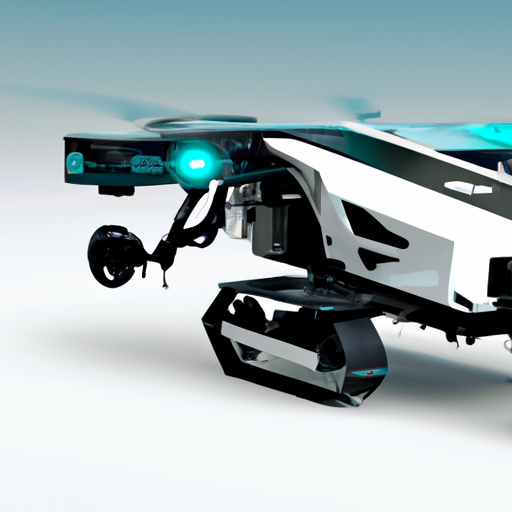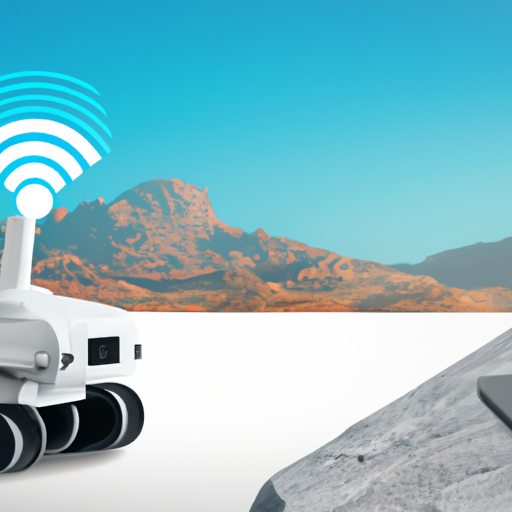The impact of artificial intelligence (AI) on various industries is becoming increasingly evident. AI is transforming the way businesses operate, from automating mundane tasks to providing insights into customer behavior. AI is being used to improve customer service, increase efficiency, and reduce costs. AI is also being used to create new products and services, as well as to improve existing ones. AI is revolutionizing the way businesses interact with customers, and is creating new opportunities for businesses to grow and succeed. In this article, we will explore the impact of AI on various industries, and how businesses can leverage AI to their advantage.
How AI is Transforming the Automotive Industry
The automotive industry is undergoing a major transformation due to the emergence of artificial intelligence (AI). AI is revolutionizing the way cars are designed, manufactured, and operated, and is set to have a profound impact on the industry in the years to come.
AI is being used to improve the design and manufacturing of cars. Automakers are using AI to create more efficient and cost-effective designs, as well as to automate the manufacturing process. AI-driven design tools can generate thousands of potential designs in a fraction of the time it would take a human designer. AI-driven manufacturing processes can also reduce costs and improve quality control.
AI is also being used to improve the safety and performance of cars. Automakers are using AI to develop advanced driver assistance systems (ADAS) that can detect and respond to potential hazards on the road. AI-driven systems can also be used to optimize the performance of cars, such as improving fuel efficiency and reducing emissions.
Finally, AI is being used to improve the customer experience. Automakers are using AI to develop connected cars that can provide personalized services to drivers. AI-driven systems can also be used to provide predictive maintenance services, allowing drivers to anticipate and address potential problems before they become serious.
In conclusion, AI is transforming the automotive industry in a number of ways. AI-driven design and manufacturing processes are making cars more efficient and cost-effective. AI-driven safety and performance systems are making cars safer and more efficient. And AI-driven customer experience systems are making cars more personalized and connected. As AI continues to evolve, it is likely to have an even greater impact on the automotive industry in the years to come.
The Impact of AI on the Healthcare Industry
The healthcare industry is undergoing a major transformation due to the emergence of artificial intelligence (AI). AI is a form of computer technology that is capable of performing tasks that normally require human intelligence, such as decision-making, problem-solving, and pattern recognition. AI has the potential to revolutionize the healthcare industry by improving patient care, reducing costs, and increasing efficiency.
AI can be used to improve patient care by providing more accurate diagnoses and treatments. AI-based systems can analyze large amounts of data quickly and accurately, allowing doctors to make more informed decisions about patient care. AI can also be used to detect diseases earlier, allowing for earlier intervention and better outcomes. Additionally, AI can be used to automate mundane tasks, such as scheduling appointments and ordering tests, freeing up time for healthcare professionals to focus on more important tasks.
AI can also help reduce costs in the healthcare industry. AI-based systems can automate administrative tasks, such as billing and insurance claims processing, which can reduce overhead costs. AI can also be used to identify and reduce waste in the healthcare system, such as unnecessary tests and treatments. Additionally, AI can be used to identify potential fraud and abuse, which can help reduce costs associated with fraudulent claims.
Finally, AI can be used to increase efficiency in the healthcare industry. AI-based systems can automate mundane tasks, such as scheduling appointments and ordering tests, freeing up time for healthcare professionals to focus on more important tasks. AI can also be used to analyze large amounts of data quickly and accurately, allowing doctors to make more informed decisions about patient care.
In conclusion, AI has the potential to revolutionize the healthcare industry by improving patient care, reducing costs, and increasing efficiency. AI-based systems can automate mundane tasks, identify potential fraud and abuse, and analyze large amounts of data quickly and accurately. As AI technology continues to develop, it is likely that its impact on the healthcare industry will continue to grow.
AI and the Future of the Financial Services Industry

The financial services industry is undergoing a rapid transformation due to the emergence of artificial intelligence (AI). AI is a form of technology that enables machines to learn from data and make decisions without human intervention. AI has the potential to revolutionize the financial services industry by providing more efficient and accurate services.
AI can be used to automate processes, such as customer service, fraud detection, and portfolio management. Automation can reduce costs and improve accuracy, allowing financial institutions to provide better services to their customers. AI can also be used to analyze large amounts of data and identify patterns that can be used to make better decisions. For example, AI can be used to identify potential risks and opportunities in the markets, allowing financial institutions to make more informed decisions.
AI can also be used to provide personalized services to customers. AI-powered chatbots can provide customers with personalized advice and recommendations based on their individual needs. AI can also be used to detect customer sentiment and provide tailored services to meet their needs.
AI is also being used to develop new financial products and services. For example, AI-powered robo-advisors can provide personalized investment advice to customers. AI can also be used to develop new financial products, such as automated trading systems and algorithmic trading.
The use of AI in the financial services industry is still in its early stages, but it is clear that AI has the potential to revolutionize the industry. AI can provide more efficient and accurate services, reduce costs, and provide personalized services to customers. As AI technology continues to develop, it is likely that the financial services industry will continue to be transformed by AI.
AI and the Retail Industry: What to Expect
The retail industry is undergoing a major transformation due to the emergence of artificial intelligence (AI). AI is being used to automate processes, improve customer service, and increase efficiency. This technology is revolutionizing the way retailers do business and is expected to have a major impact on the industry in the coming years.
AI can be used to automate mundane tasks such as inventory management, customer service, and order fulfillment. This can help retailers reduce costs and increase efficiency. AI can also be used to analyze customer data and provide insights into customer behavior. This can help retailers better understand their customers and tailor their offerings to meet their needs.
AI can also be used to improve customer service. AI-powered chatbots can provide customers with personalized service and help them find the products they need. AI can also be used to provide personalized recommendations to customers based on their past purchases and preferences.
Finally, AI can be used to improve the shopping experience. AI-powered virtual assistants can help customers find the products they need and provide them with personalized recommendations. AI can also be used to provide customers with a more immersive shopping experience by providing them with virtual reality experiences.
Overall, AI is expected to have a major impact on the retail industry in the coming years. AI can help retailers automate mundane tasks, improve customer service, and provide customers with a more personalized shopping experience. As AI continues to evolve, retailers should be prepared to take advantage of this technology to stay competitive in the market.
AI and the Manufacturing Industry: What’s the Impact?
The manufacturing industry is undergoing a major transformation due to the emergence of artificial intelligence (AI). AI is being used to automate processes, improve efficiency, and reduce costs. This technology has the potential to revolutionize the industry, making it more competitive and efficient.
AI can be used to automate processes such as inventory management, production scheduling, and quality control. This can reduce the need for manual labor, resulting in cost savings and improved efficiency. AI can also be used to analyze data and identify patterns, allowing for more accurate forecasting and decision-making. This can help manufacturers make better decisions about production, pricing, and marketing.
AI can also be used to improve product quality. AI-enabled robots can be used to inspect products for defects and ensure that they meet quality standards. This can reduce the need for manual inspection and improve product quality.
AI can also be used to improve customer service. AI-enabled chatbots can be used to answer customer queries and provide personalized recommendations. This can help manufacturers build better relationships with their customers and increase customer satisfaction.
Overall, AI has the potential to revolutionize the manufacturing industry. It can be used to automate processes, improve efficiency, and reduce costs. It can also be used to improve product quality and customer service. As AI technology continues to evolve, it is likely to have an even greater impact on the manufacturing industry.The impact of artificial intelligence on various industries is undeniable. AI has the potential to revolutionize the way businesses operate, from automating mundane tasks to providing insights into customer behavior. AI can also help to improve customer service, increase efficiency, and reduce costs. As AI continues to evolve, its potential to transform industries will only increase. With the right strategies and investments, businesses can leverage AI to gain a competitive edge and remain competitive in the future.




















